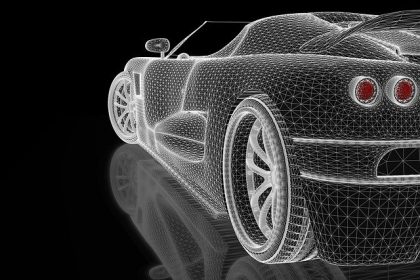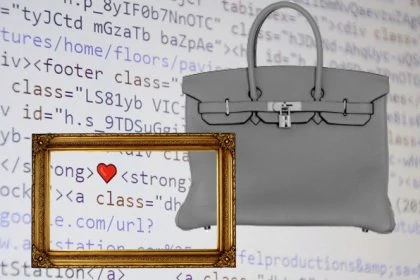3D printing is a trend, and no longer just for medical technology and mechanical engineering. Consumer goods manufacturers, industry and even the food sector are also using 3 D printing. In a two-part article we summarise the legal situation regarding patent rights and copyright in 3 D Printing.
3 D Printing is a trend in all sectors of the economy
3D printing is an unbroken trend; patent applications for 3D printing have grown by an average of 36% per year between 2015 and 2018, according to a study this year by the European Patent Office.
Germany stands out as a particular leader among European patent applications for 3 D printing. The EPO evaluated all patent applications filed with the EPO in the field of additive manufacturing (AM), better known as 3D printing, in the period 2010 to 2018. In total, more than 16,000 patents for 3 D printing were filed with the EPO in these eight years, with Germany alone accounting for 19% of all AM patent applications.
3D printing is widely used in many different industries. Since 2010, 3 D printing has been important for medical technology, as well as for mechanical engineering, industrial tools, energy and transport. However, patent applications for 3D printing are increasingly coming from sectors such as construction, consumer goods and even the food industry.
3D printing is moving into all sectors of the economy, especially where large-scale series production is not worthwhile – or is not desired because there is a growing demand for individual production and customisation, especially in the lifestyle sector.
Two-part summary of the legal situation regarding 3D printing
In a two-part article, we therefore summarise the legal situation regarding 3D printing together with patent law and copyright, especially with view on German patent law. This is because 3D printing can lead to the infringement of industrial property rights under certain circumstances. Many manufacturers who use 3D printing for printing to order are increasingly securing EU registered designs, design rights and also patents to protect housing parts or construction components.
3 D Printing in German patent law
In patent law, two fundamentally different cases have to be considered with regard to 3D printing: on the one hand, the component to be printed may itself be under patent protection, but on the other hand, it may also be only a part of a product that is protected as a patent as a whole.
The component to be printed is protected as a patent
The first case is almost clear: if the component to be printed is protected by a patent, such a component may not be commercially manufactured using 3D printing or any other manufacturing process. This is because the scope of protection for a patented product is generally the same regardless of the manufacturing process.
The component to be printed is part of a patented product
The legal situation is more complicated if the component to be printed is only part of a patented product. This often happens with spare parts. Here it is only necessary to assess for each individual case and taking into account all details whether a 3D print constitutes a patent infringement.
If the component to be printed has a close connection to an essential element of the patent-protected invention, the commercial 3D print of such a component would be considered a contributory patent infringement according to § 10 German PatG.
Thus, 3D printing of spare parts for a patented product is only possible if it is not closely related to an essential element of a protected invention. Very important then is the economically assumed useful life, i.e. “lifetime” of the patented product for which a spare part is produced by 3D printing. This is because the 3D printing of a spare part is only permissible if the entire product has not yet reached the end of its useful life.
This also applies to classic wearing parts, which may normally be produced in 3D printing.
“Scrap part” must not be reproduced in 3D printing
A useless scrap part, on the other hand, cannot in most cases be made usable again by 3D printing, as this is considered a new production of the patented product.
And please note: if the failure of wear parts leads to the fact that the lifetime of the patent-protected product has already expired, it is highly probable that the “subsequent” 3D printing of wear parts is guilty of patent infringement.
Indirect patent infringement of the invention: Attention CAD file
A layperson may not always find such a contributory patent infringement obvious, as such a patent infringement may exist even if the corresponding component or a means of 3D printing such as a CAD file itself is not explicitly protected by patent. But even the use and even the distribution of a CAD file can already constitute a contributory patent infringement in 3D printing. We will report on this more detailed in #Part 2 on 3 D printing.
The legal situation is therefore not always easy to assess with regard to possible patent infringement by 3D printing.
If in doubt, please do not hesitate to contact us, our lawyers have many years of expertise in patent law and in the entire field of intellectual property.
We are entitled to represent you before any court – in Germany and internationally.
Please contact us if you are interested.
Sources:
German Patent law
Study of EPO (July 2020) patent applications for AM
Image:
TayebMEZAHDIA | pixabay.com | CCO License









Leave a Reply